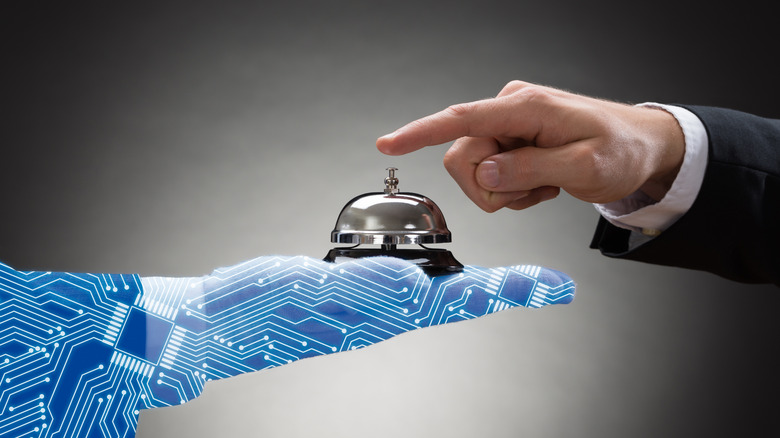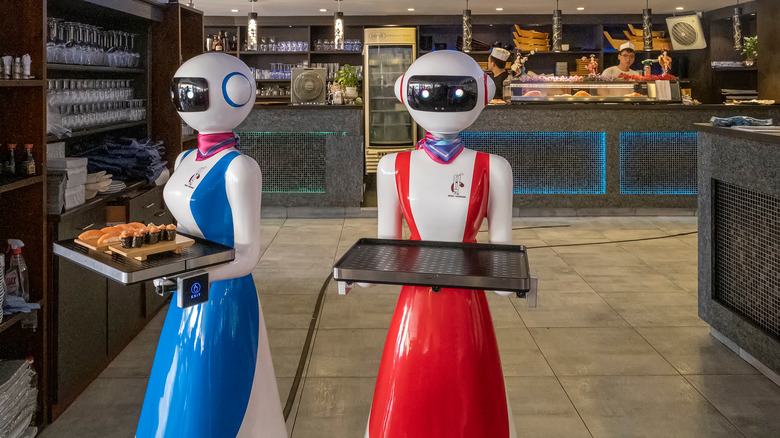What Increased AI Tech Could Mean For The Resturant Industry
It's likely you have already been engaged by artificial intelligence (AI) on some level in a restaurant, perhaps in a drive-through, or while placing an order on the telephone. Many restaurants are testing AI options to manage a variety of tasks since, according to Fast Casual, the rate of restaurant workers leaving their jobs is 6.8% higher than that of other types of workers, and full-service restaurants are running with 6.2% fewer kitchen staff members than they were in 2019.
In addition to filling the vacancies in understaffed kitchens, the industry sees merit in using AI, particularly in phone and text ordering, according to The Wall Street Journal. AI bots offer various benefits for restaurants and their customers: They can add you to a waitlist without having to wait for a frazzled host to pick up, and can even answer frequently asked questions (via Popmenu). They can also take many orders at one time, rather than the usual one or two phone lines direct to a restaurant. If you have ever ordered a pizza in the middle of rush hour — and who hasn't? — you know what it is to be on hold for far too long, order from a stressed-out, hurried host, and cross your fingers you'll receive what you wanted.
But is AI good for the food industry?
Still, we may not feel comfortable delivering our order to a robot if there are serious circumstances, like a food allergy or dietary restriction. Amazingly, software company HungerRush has thought of that, and has created technology that can detect if a customer is irritated or there is confusion occurring in the process, automatically forwarding them to a human operator at the restaurant they're ordering from, per The Wall Street Journal. Fortunately, it seems most of us are on board with more technology in our restaurant experience. In a 2019 Harris Poll of over 2000 people, shared in a press release from digital advertising company AdTheorent, Inc., more than 70% were already using mobile devices for services in both fast food and fine dining establishments.
Still, McDonald's CEO Chris Kempczinski doesn't see full-scale automation or robot waiters serving us on a larger scale soon, at least not at McDonald's, according to The Wall Street Journal. He cites the cost of renovating existing buildings to accommodate and implement the technology as prohibitive. Rather, McDonald's is opting to invest in people by paying higher wages and offering more training for advancement. In the immediate future, drive-in service is the focus of AI initiatives for many brands, including Panera, Burger King, and McDonald's. Some of the benefits of using AI in this capacity are speed, accuracy, and higher sales.

